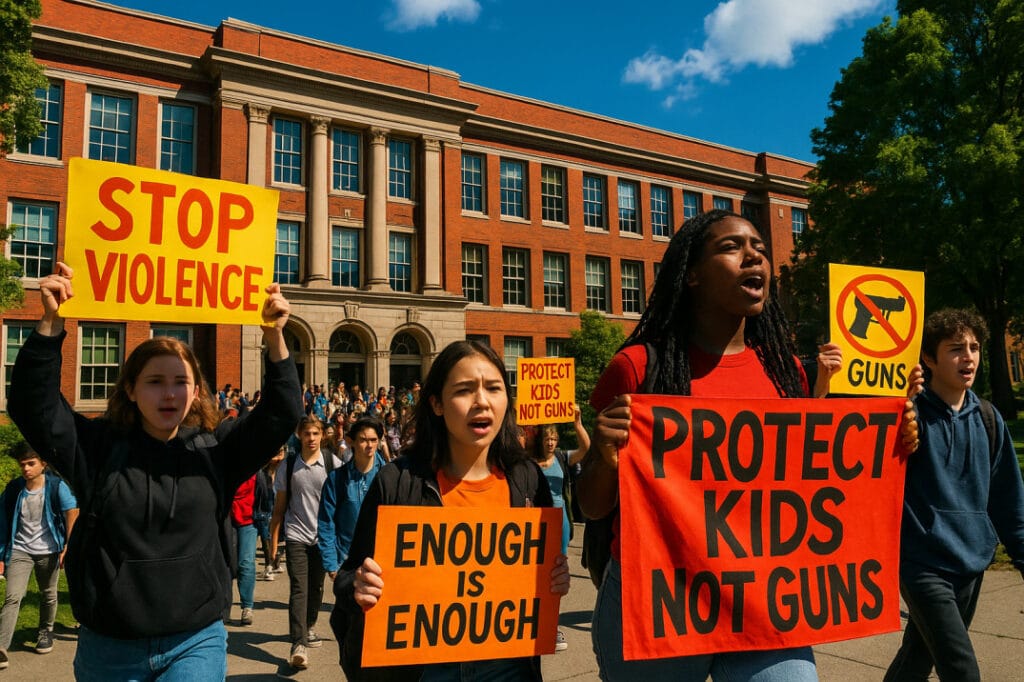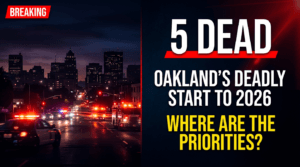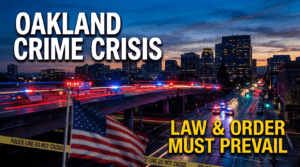When School Walkouts Replace Learning: Oakland Students Skip Class for Political Theater


A Critical Look at How Activist Organizations Are Turning Our Schools Into Political Battlegrounds
On a recent weekday morning in Oakland, hundreds of high school students abandoned their classrooms not for a fire drill or emergency, but for what has become an increasingly common occurrence in American education: a politically motivated walkout. Organized by Students Demand Action, a grassroots organization with ties to the broader gun control movement, the Oakland demonstration was part of a coordinated nationwide effort that saw students from coast to coast leave their studies to participate in what critics argue is little more than political theater disguised as civic engagement.
The Rise of Classroom Activism
The Oakland walkout represents a troubling trend that has accelerated in recent years: the transformation of educational institutions into launching pads for political activism. While proponents frame these events as exercises in civic engagement and democratic participation, a closer examination reveals a more concerning reality. Students are being encouraged, and in some cases pressured, to abandon their primary responsibility—learning—in favor of participating in predetermined political narratives.
Students Demand Action, the organization behind this latest demonstration, is part of the Everytown for Gun Safety network, a well-funded political advocacy group with clear partisan objectives. When such organizations gain access to school environments and student populations, they effectively turn educational institutions into recruitment centers for their political causes. This raises serious questions about the appropriate role of outside political groups in our schools and whether students are being manipulated by adult activists with their own agendas.
The Educational Cost of Political Disruption
Every minute spent organizing walkouts, creating protest signs, and participating in demonstrations is time stolen from actual education. Oakland’s public schools, like many urban districts across California, already face significant challenges in academic achievement. According to state data, many Oakland schools struggle with proficiency rates in core subjects like mathematics and reading. When students are encouraged to prioritize political activism over classroom instruction, these academic deficits only deepen.
The irony is particularly stark when considering that many of the same students participating in these walkouts could benefit most from focused attention on their studies. Rather than addressing the root causes of violence in communities—which often include educational inequity, family breakdown, and lack of economic opportunity—these demonstrations offer only symbolic gestures that do nothing to improve the daily reality facing Oakland’s youth.
Furthermore, the walkout culture sends a dangerous message about civic responsibility and the rule of law. When students are taught that the appropriate response to policy disagreements is to abandon their obligations and take to the streets, we undermine the very foundations of ordered society. This lesson in civil disobedience may seem harmless in the context of a school walkout, but it establishes patterns of thinking that can have far-reaching consequences.
The Manipulation of Young Minds
Perhaps most concerning is the way these events exploit the natural idealism and emotional responsiveness of teenagers. Young people, particularly those in high school, are naturally drawn to causes that seem to offer clear moral distinctions between good and evil. Gun violence, with its obvious tragic consequences, provides exactly this kind of emotional appeal. However, the complex policy questions surrounding Second Amendment rights, public safety, and effective violence prevention require mature deliberation and nuanced thinking—not the kind of black-and-white activism promoted by walkout organizers.
Students participating in these events are rarely presented with opposing viewpoints or encouraged to engage with the full complexity of the issues at hand. Instead, they are fed simplified narratives that cast gun rights advocates as uncaring obstacles to safety, while positioning gun control measures as obvious solutions that only heartless politicians would oppose. This kind of indoctrination masquerades as education but actually represents its opposite: the closing of minds rather than their opening.
The Failure of Adult Leadership
The Oakland walkout also highlights a broader failure of adult leadership in our educational system. Rather than maintaining their role as neutral facilitators of learning, too many educators and administrators have become cheerleaders for particular political causes. When school officials provide tacit or explicit support for these walkouts—whether by excusing absences, providing organizational support, or simply failing to maintain normal disciplinary standards—they abandon their responsibility to provide balanced, apolitical education.
Parents send their children to school with the expectation that they will receive instruction in core academic subjects and develop critical thinking skills. They do not send them to be recruited into political movements or to have their class time sacrificed for the advancement of particular policy agendas. When schools fail to maintain this basic trust, they violate the fundamental compact between educational institutions and the families they serve.
The Real Solutions to Violence
While Oakland students were walking out of class to demand gun control measures, the real drivers of violence in their community remained largely unaddressed. Oakland continues to struggle with high rates of violent crime, much of it concentrated in specific neighborhoods and often involving illegal firearms that would be unaffected by the policy measures typically promoted by gun control advocates.
Effective violence prevention requires addressing root causes: strengthening families, improving educational outcomes, creating economic opportunities, and ensuring effective law enforcement. These solutions require hard work, sustained commitment, and often uncomfortable conversations about personal responsibility and community standards. They cannot be achieved through symbolic gestures or political demonstrations.
Moreover, many of the most effective violence prevention strategies actually involve expanding rather than restricting rights—such as supporting concealed carry permits for law-abiding citizens, encouraging responsible gun ownership and training, and ensuring that existing laws are properly enforced rather than adding new restrictions that primarily burden legal gun owners.
Moving Forward: Education Over Activism
The Oakland walkout and similar events across the country represent a fundamental misunderstanding of the role of education in a free society. Schools should be places where young people learn to think critically, engage with diverse perspectives, and develop the knowledge and skills necessary for productive citizenship. They should not be recruitment centers for political movements or staging grounds for partisan demonstrations.
Parents, taxpayers, and concerned citizens must demand that educational institutions return to their core mission. This means insisting on political neutrality in the classroom, holding schools accountable for academic outcomes rather than activist participation, and ensuring that outside political organizations do not have inappropriate access to student populations.
The future of our democracy depends not on training young people to be unthinking participants in political movements, but on educating them to be thoughtful, informed citizens capable of independent judgment. The Oakland walkout, whatever its organizers’ intentions, moves us further from rather than closer to this essential goal.
When our schools prioritize political activism over academic achievement, everyone loses—but most of all, the students whose futures depend on receiving a genuine education rather than political indoctrination disguised as civic engagement.













